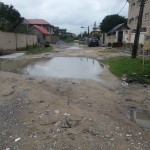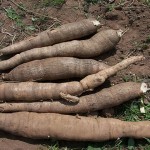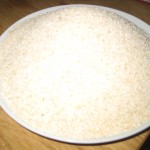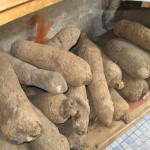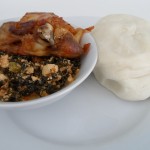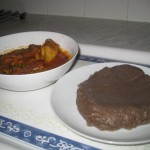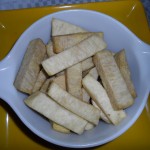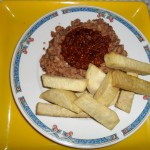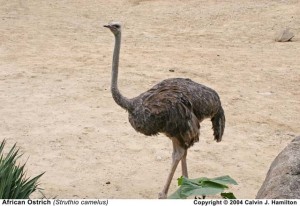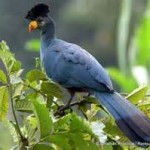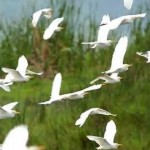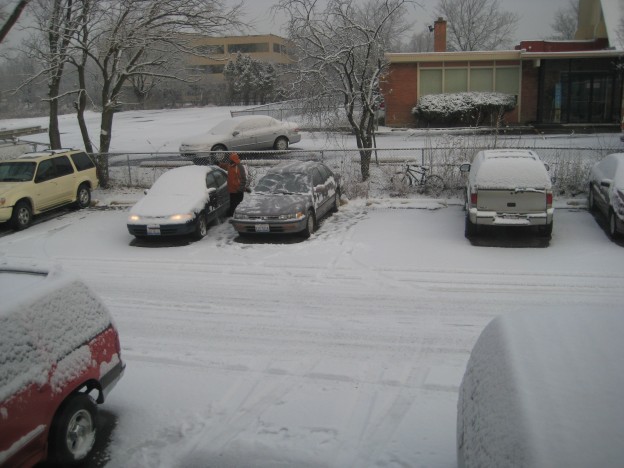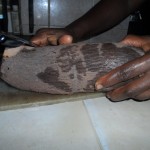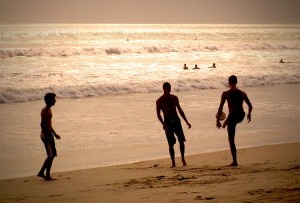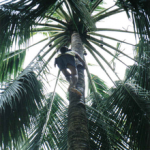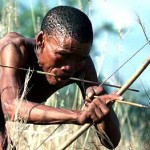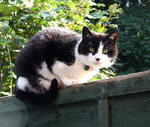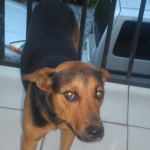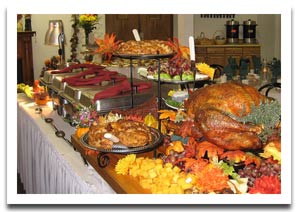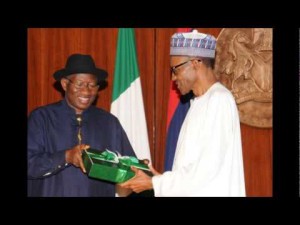Ọmọ ki dédé rù lai ni idi. Lára àwọn idi ti ọmọ lè fi rù ni: àìsàn, ebi, òùngbẹ, ìṣẹ́, ai ni alabojuto, òbí olójú kòkòrò, ai ni òbí àti bẹ ẹ bẹ lọ.
Orilẹ̀ èdè Nigeria ti jẹ gbogbo ìyà àwọn ohun ti ó lè mú ki ọmọ rù yi, lọ́wọ́ Ìjọba Ológun àti Òsèlú fún ọ̀pọ̀ ọdún. Nigbati àwọn òbí ti ó fẹ́ràn ọmọ bi Olóògbé Olóyè Ọbáfẹ́mi Awólọ́wọ̀ àti àwọn àgbà ti ó bèrè fún Ominira lọwọ Ilú-Ọba, ṣe Òsèlú, ilú kò rù, pàtàki ọmọ Yorùbá. Wọn fi ọrọ̀ ajé àti iṣẹ́ àgbẹ̀ ni ipinlẹ̀, pèsè ohun amáyédẹrùn fún ilú, ilé-ìwòsàn ọ̀fẹ́, ilé-iwé ọ̀fẹ́, àwọn tó jade ni ilé-iwé giga ri iṣẹ́ gidi àti pé àwọn ará ilú tẹ̀ lé òfin. Eyi mú ìlọsíwájú bá ilẹ̀ Yorùbá ju ọ̀pọ̀lọpọ̀ ilẹ̀ Aláwọ̀dúdú.
Ilú bẹ̀rẹ̀ si rù lati igbà ti Ìjọba Ológun àkọ́kọ́ ti fi ipá kó gbogbo ipinlẹ̀ Nigeria si abẹ́ Ìjọba-àpapọ̀ ni ọdún mọ́kàndinlãdọta sẹhin . Lati igbà ti wọn ti kó ọrọ̀ ajé gbogbo ipinlẹ̀ si abẹ́ Ìjọba-àpapọ̀ ti a lè pè ni “Òbí” ti jinà si ará ilú ti a lè pè ni “Ọmọ” ti rù. Ojúkòkòrò àti olè ji jà Ìjọba Ológun àti Òṣèlú lábẹ́ Ìjọba-àpapọ̀ ti fa ebi, òùngbẹ àti àìsàn fún ará ilú.
![]()
![]()
![]()
Ni ọdún mọ́kànlélọ́gbọ̀n sẹhin, Olóri Òsèlu tuntun Muhammadu Buhari àti àtẹ̀lé rẹ Túndé Ìdíàgbọn ṣe Ìjọba fún ogún oṣù gẹgẹ bi Ìjọba Ológun. Nigbati wọn gba Ìjọba lọ́wọ́ àwọn Òṣèlú ti ó ba ilú jẹ́ pẹ̀lú iwà ìbàjẹ́ ti wọn fi kó ilú si igbèsè lábẹ́ Olóri Òṣèlú Shehu Shagari, wọn fi ìkánjú ṣe idájọ́ fún àwọn tó hu iwà ibàjẹ́, eleyi jẹ ki ilú ké pé Ìjọba wọn ti le jù. Ká ni ilú farabalẹ̀ ni àsikò na a, ilú ki bá ti dára si. Nigbati Olóri-ogun Badamasi Babangida gba Ìjọba, inú ilú dùn nitori àyè gba ará ilú lati ṣe bi wọn ti fẹ lati ri owó. Eleyi jẹ ki ọ̀pọ̀lọpọ̀ olówó ojiji pọ̀ si lati igbà na a titi di oni. Àyè àti ni owó ojiji nipa ifi owó epo-rọ̀bì ṣòfò, ki kó owó ìpèsè ohun amáyédẹrùn jẹ, gbi gba àbẹ̀tẹ́lẹ̀ àti iwà ìbàjẹ́, ló pa ilé-iwé giga, ilé-ìwòsàn, pàtàki ìpèsè iná-mọ̀nàmọ́ná, ìdájọ́ àti bẹ ẹ bẹ lọ.
A lè lo òwe “A ki i fi ọjọ́ kan bọ́ ọmọ tó rù” ṣe àlàyé pé iwà ìbàjẹ́ àti ohun tò bàjẹ́ fún ọdún pi pẹ́ kò ṣe tún ṣe ni ọjọ́ kan, nitori eyi, ki ará ilú ṣe sùúrù fún Ìjọba tuntun lati ṣe àtúnṣe lati ìbẹ̀rẹ̀. Ki Ìjọba tuntun na a mọ̀ pé “Ori bi bẹ́, kọ́ ni oògùn ori fi fọ́”, nitori eyi ki wọn tẹ̀ lé òfin lati ṣe ìdájọ́ fún àwọn ti ó ba ilú jẹ́.
ENGLISH TRANSLATION
A child does not become malnourished without a reason. Among the causes of malnourishment are: illness/sickness; hunger, thirst, poverty, neglect, greedy parents, orphanage etc.
Nigerian Nation for many years has suffered all that is associated with the cause of a malnourished child, under both the Military and Democratic Government. When a parent that loved the child like leaders as Late Chief Obafemi Awolowo and the elders that fought for independence from British Empire, were in Government, the Country was not malnourished, particularly Yoruba Region. Revenue and Agriculture from the Regions were used to provide infrastructure, free Health Care, free Education, Graduates got good jobs and people followed the rule of law. This brought about progress for Yoruba Region more than many African Countries.
Forty-nine years ago, the Country began to decline since the first Military Government introduced the Unitary System. Since, Revenue from the Regions were harnessed under the Federal Government (known as Parent in this scenario), the Government at the Centre has been farther from the people, Nigerians, (known as a Child in this scenario) became malnourished. Greed and looting public treasury by the Military and Democratic Government under the Federal Government has caused hunger, thirst and sickness for the people.
Thirty-one years ago, the newly elected President Muhammadu Buhari and his former Deputy Head of State Late General Tunde Idiagbon were in power for twenty months as Military Head of State. When they took over power from the Democratic Government led by President Shehu Shagari, which turned the Country to a debtor Nation as a result of corruption, they were quick in sentencing those perceived to be corrupt, this caused people’s outcry that the Government was too strict. The people were happy when General Ibrahim Babangida seized the opportunity to take over power and relaxed the rules to enable people enrich themselves by all means. This brought about more ill-gotten wealth till today. The opportunity to sudden wealth by squandering Crude Oil Revenue, Infrastructure Development fund embezzlement, bribery and corruption caused the decay in educational institutions, hospitals, particularly power supply, justice system etc.
The proverb that said “It takes more than One Day to Nourish a Malnourished child” explained that long years of corruption and moral decadence cannot be addressed in one day, as result, Nigerians should be patient with the newly elected Government to address these problems from its root. The newly elected Democratic Government should realize also that “Cutting off the head is not the cure for headache”, as a result, rules of law must be used to prosecute those who have contributed to the decadence.
Originally posted 2016-01-12 10:09:45. Republished by Blog Post Promoter



